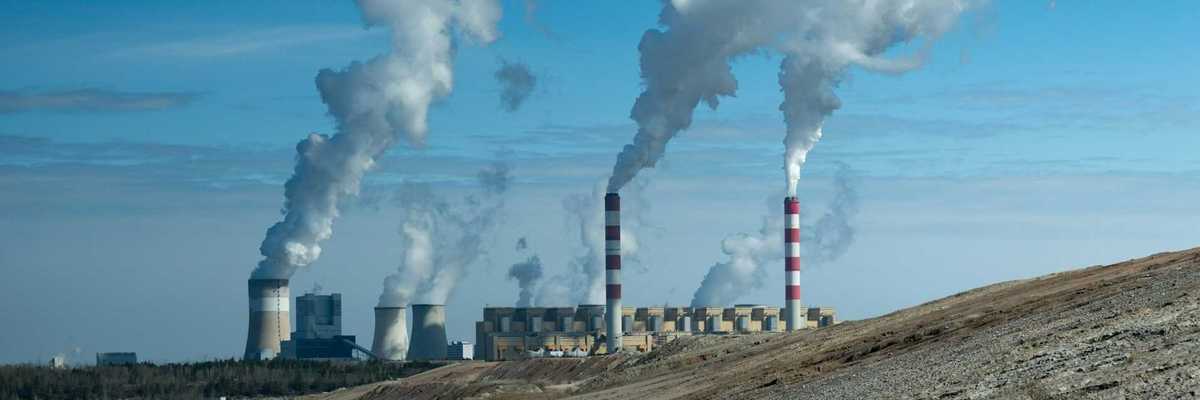iowa
Iowa carbon pipeline regulations challenged by Summit
Summit Carbon Solutions claims Iowa counties lack the authority to enforce ordinances restricting the siting of carbon dioxide pipelines, stating that state and federal regulators have ultimate control.
In short:
- Summit Carbon Solutions seeks to overturn county ordinances that mandate setbacks for carbon pipelines, arguing these regulations conflict with state and federal authority.
- Federal and state regulators are said to have exclusive jurisdiction over pipeline safety, according to Summit and its supporters.
- The case, involving appeals from Shelby and Story counties, will be heard by the Eighth Circuit U.S. Court of Appeals, with a decision expected next year.
Key quote:
“Local governments have traditionally exercised broad powers to regulate land use, including setback distances and property development that includes development in the vicinity of pipelines.”
— Alan Mayberry, pipeline safety administrator, PHMSA
Why this matters:
Summit Carbon Solutions’ stance underscores a broader trend where large energy and infrastructure firms seek to bypass local regulations, often arguing that a unified regulatory framework is essential for the development of critical projects. For this company, this means pushing forward with plans to construct extensive CO2 pipelines intended to capture and transport carbon emissions from industrial sources to underground storage sites. These pipelines are a key component of strategies aimed at reducing greenhouse gas emissions and mitigating climate change.
Insurance woes increase as climate change impacts profitability
In Iowa, a state typically seen as low-risk for insurers, companies are withdrawing due to increased losses caused by climate change.
In short:
- In Iowa, increased frequency of severe weather events like hail and wind storms has led to significant insurance company losses.
- Homeowners face cancellations and difficulties in finding new insurers, potentially leading to financial ruin without coverage.
- The situation mirrors broader national trends where climate change impacts are destabilizing insurance markets.
Key quote:
“Insurance is where many people are feeling the economic impacts of climate change first. That is going to spill over into housing markets, mortgage markets, and local economies.”
— Carolyn Kousky, associate vice president for economics and policy at the Environmental Defense Fund
Why this matters:
The retreat of insurance providers from Iowa is primarily due to an uptick in severe weather events, including more intense and frequent storms and flooding, which have led to higher-than-expected payouts. This pattern is indicative of a larger, more worrying trend that could reshape the insurance industry nationwide. As weather patterns become less predictable and more extreme, insurance companies are forced to reassess their exposure to risks they had previously underestimated.
A 2023 story by Derrick Z. Jackson reports that nearly 15 million homes were impacted in 2021 by climate disasters.
Iowa's Senate reviews pipeline property bill
A proposed Iowa Senate bill aims to empower landowners in the face of pipeline construction, offering earlier judicial review opportunities amidst debates over eminent domain rights and environmental concerns.
In short:
- Iowa's proposed legislation may change how landowners can contest eminent domain for pipeline construction.
- The bill allows earlier court challenges and could let landowners halt projects without financial penalties.
- Aimed at giving landowners more rights, the bill is receiving mixed reactions regarding its potential impact on pipeline investments.
Key quote:
Those who oppose such projects “could use the tools of this bill to stop virtually any pipeline project in the state because they could create endless timelines, and time kills projects.”
— Jeff Boeyink, lobbyist for Summit Carbon Solutions
Why this matters:
Environmentalists and some landowners align in opposition to pipelines, citing potential risks to ecosystems, water sources, and the broader implications for climate change. They advocate for more investment in renewable energy sources as alternatives to fossil fuel dependency. Legally, the conflict often plays out in courts, with landowners challenging the use of eminent domain in the context of private companies and projects. The outcomes of these legal battles are mixed and continue to shape the evolving landscape of energy infrastructure in the U.S.
Expanded carbon dioxide pipeline proposed for Iowa
Summit Carbon Solutions seeks to grow its CO2 pipeline network in Iowa to include more ethanol plants.
In short:
- Summit Carbon Solutions intends to increase its pipeline system in Iowa by 340 miles, connecting additional ethanol plants.
- The expansion comes after Navigator CO2 abandons its similar project, leading ethanol producers POET and Valero to join Summit.
- The Iowa Utilities Board is reviewing Summit's initial proposal, while opponents express concerns over land rights and environmental impacts.
Key quote:
"I view our project as representing a meaningful shift in agriculture to lower the carbon intensity of biofuel products."
— Lee Blank, CEO of Summit Carbon Solutions
Why this matters:
This pipeline expansion is crucial for enhancing biofuel production's environmental profile, which aligns with national efforts to reduce carbon emissions. It also directly impacts Iowa's economy, where corn for ethanol is a significant crop.
Most of the ever increasing harvests of corn and soybeans produced by our struggling farmers aren't even eaten directly by humans. They are fed to cattle and used for industrial food ingredients and biofuels.
Iowa counties await decision on pipeline ordinances amid legal battles
Several Iowa counties face legal challenges over ordinances restricting carbon dioxide pipelines, with outcomes hinging on federal appeals.
In short:
- Shelby and Story counties' pipeline restrictions were overruled by a federal judge, sparking appeals.
- Summit Carbon Solutions sued five counties for imposing pipeline restrictions, citing disruption to their $8 billion pipeline project.
- The legal battles reflect local concerns about pipeline safety and environmental impacts.
Key quote:
"The challenged restrictions impose severe limitations that will lead to a situation where the (Iowa Utilities Board) may grant a permit to construct a pipeline and Summit is unable to do so."
— Chief Judge Stephanie Rose
Why this matters:
This legal conflict underscores the tension between local environmental safety concerns and large-scale industrial projects. The outcome could set a precedent for how local and federal authorities balance environmental protection with industrial development.
Source of pride and pollution: Balancing energy needs and community health.









